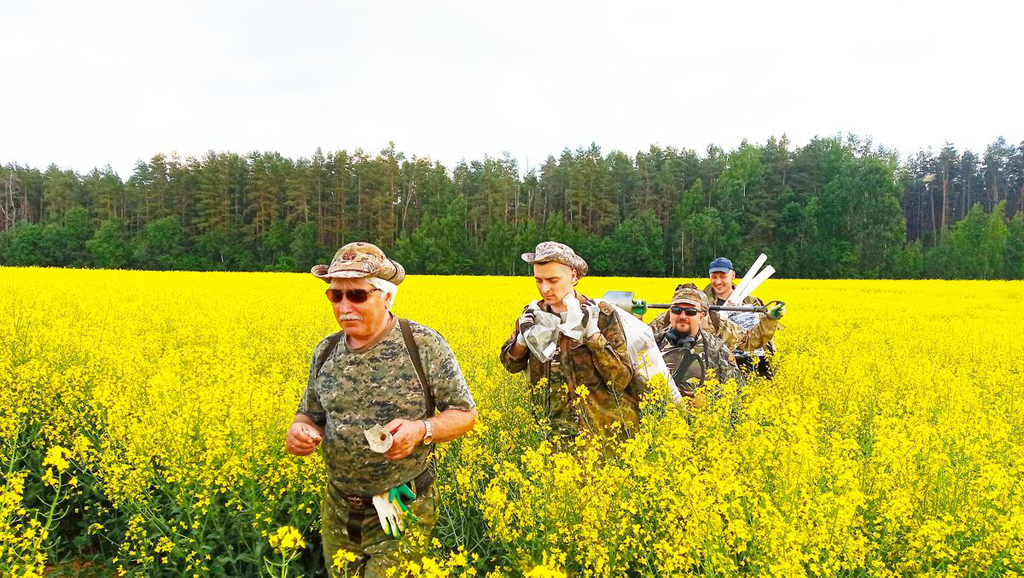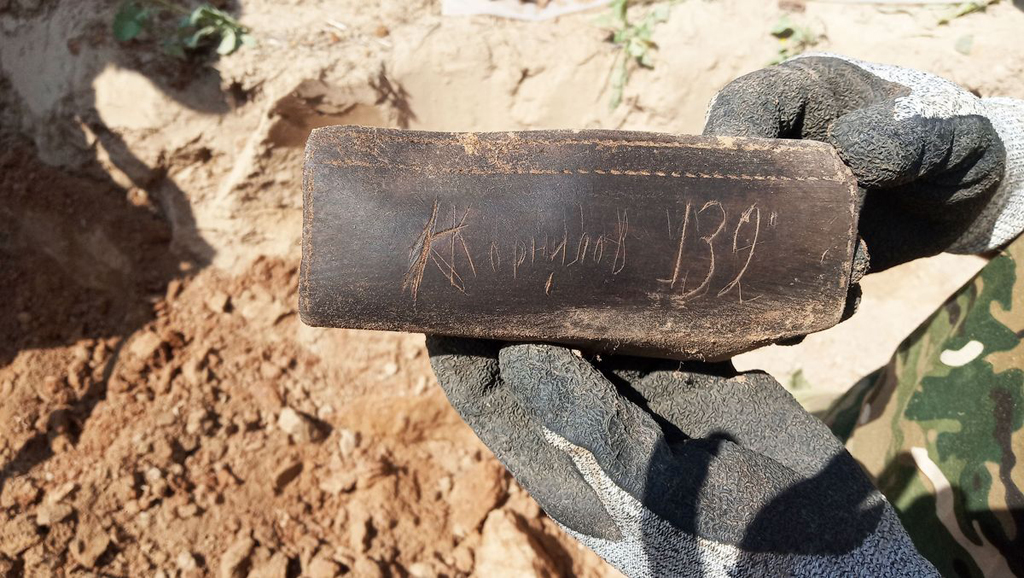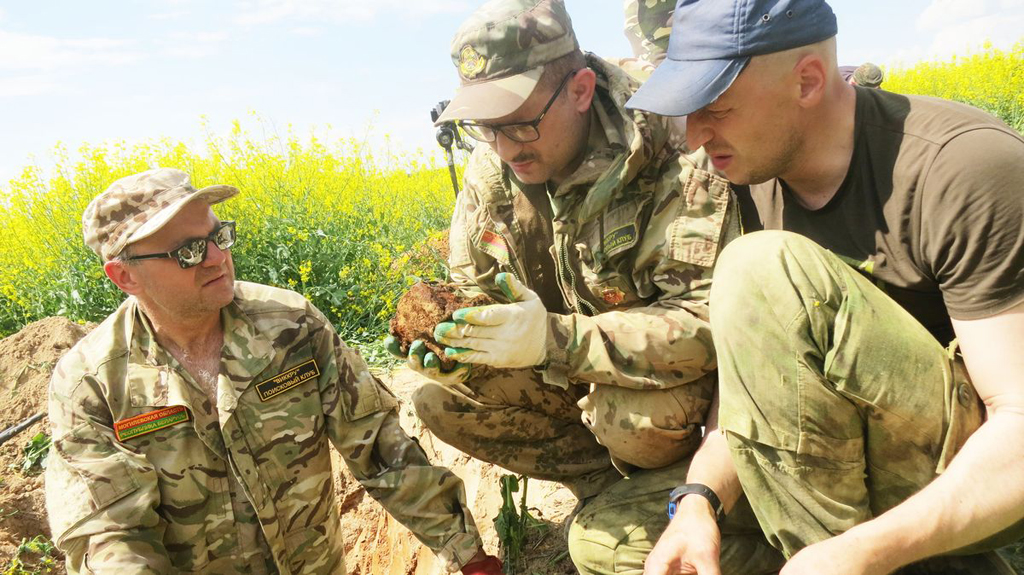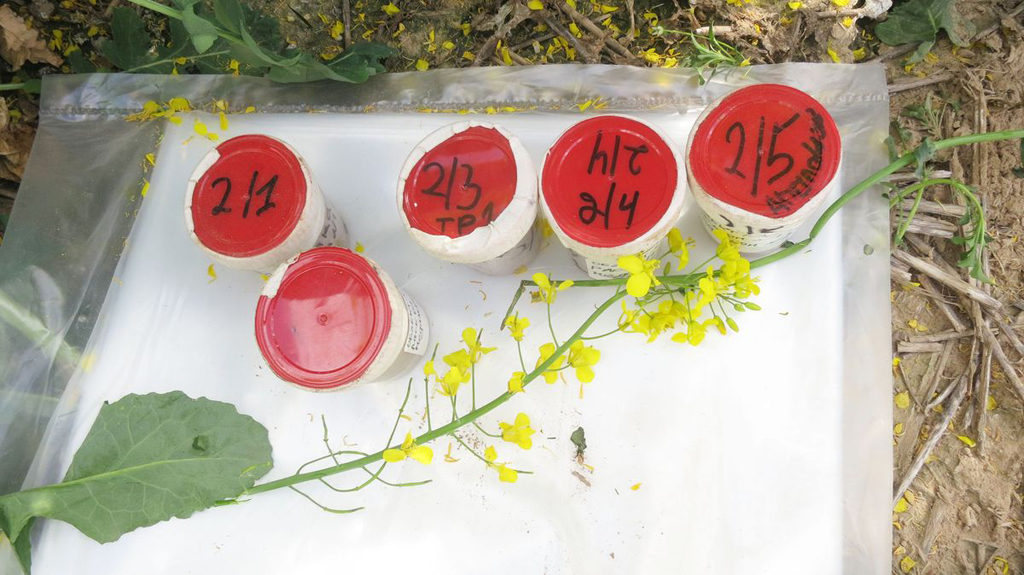"Dneprovsky frontier - 2023" - the most productive search expedition for almost 30 years of work "Vikkru"
9 June 2023
Resurrected names of the "Dnieper frontier"
In the Shklov region, the search engines raised the remains of the Red Army, who entered into an unequal battle with the SS in July 1941.
Against the backdrop of endless rapeseed fields, you want to take a selfie. Only now, the participants of the search expedition "Dnipro Frontier - 2023" have a different, noble mission. Find as many as possible of those who during the years of the Great Patriotic War on this piece of land laid down their lives for the Fatherland and are still properly restless. If possible, establish the names of the dead, save them for history.

Unnamed graves in the rapeseed fields
“Here, a few kilometers from Shklov, in early July 1941, there were fierce battles between units of the 53rd Saratov Rifle Division of the Red Army and the German SS Reich division. The SS men tried to seize the crossings on the western bank of the Dnieper, but stumbled upon well-fortified Soviet positions at Hill 215. Many of ours died here: brave fighters fought to the death,” says Nikolai Borisenko, head of the Mogilev Regional Historical and Patriotic Search Club “Vikkru”. “We came here in 1997, and when new data was revealed thanks to German captured aerial photographs, we returned again.

Before setting out on the excavations, Ilya Trikhanov, a Wiccrian, conducted a serious reconnaissance on the ground - he went here ten times, looked for where the remains of our soldiers could lie, marked the places. And now, search engines from Mogilev, Osipovichi, Bobruisk, Shklov, employees of the 52nd separate special battalion of the Ministry of Defense, employees of the Mogilev regional center of creativity, teachers and students of educational institutions of Mogilev, Shklov and the Shklov region are dispersed at the locations determined by him.
Searching for nameless graves in rapeseed fields, even with their approximate coordinates, is not an easy task. The sun bakes mercilessly, the wind carries the pollen of plants, and after a short time, the search engines, as they themselves joke, look like bumblebees. But they do not complain about the hardships, but, armed with metal detectors and shovels, they unanimously set to work. An hour later, there are several deep trench arteries on the field. One in the shape of the letter "e" stretched for 15 meters in length, and the Wiccrians Anton Prokapnev, Ilya Trikhanov, Stas Kolomiychenko extract human remains from it. On the first day - 15 fighters, and each of them has a medallion!

Svetlana Borisenko, chief of staff at Vikkru, a methodologist at the regional center of creativity, carefully packs each medallion in a separate container, bandages it with plaster for greater safety, marks it, after which the small containers are put into one large one, with earth, and tightly closed with a lid. An experienced searcher knows:
- Soldier medallions are a very fragile thing, they cannot be opened in the air: if oxygen gets inside, the oxidation process will begin at an accelerated pace. The land in which we are immersed is the optimal, familiar environment. In this form, we send the finds to Minsk for examination - this way they have a much better chance of being read.
One of the plastic medallions is thoroughly destroyed. “The bullet hit,” the guys clarify without being distracted from the process of extracting the remains. - The fighter put it in his breast pocket near his heart (usually soldiers wore medallions in trousers). It just didn't save my life...
The Nazis finished off the wounded with sapper shovels
... They lie side by side, broken skulls, broken bones in different places. It hurts to watch.
- The SS troops were particularly cruel. That's how many German cartridge cases from pistols "Walter", "Parabellum", "Browning" are in the ground. The fascists preferred not to take Soviet soldiers prisoner: they shot at close range, finished off the wounded, including with sapper shovels, - historian and search engine Nikolai Borisenko reads an “open excavation” book like a book.
In the Shklov region, the Vikkrovites raised the remains of 34 Red Army soldiers who probably died here on the night of July 10-11, 1941. They also found personal items: spoons, bowlers with initials, a leather pouch with a distinct inscription "Kornilov 132". It may also be possible to identify the dead from them.
By the way, the current expedition is rich in finds that give you goosebumps. On one of the skulls that had lain in the ground for more than 80 years, hair was miraculously preserved ...
Tent on the moose trail
To save time and energy, to start field work as early as possible, the search engines set up a tent camp on the outskirts of the field, near the forest. And in the morning, Alla Kazyuchits, the commander of the “For the Motherland!” Detachment, which is part of the “Vikkru”, woke up from the feeling that someone was breathing loudly next to her. Looked out: moose!
Sokhaty went to the field the night before, but, having found people, he quickly retreated. At dawn, curiosity made him return. True, he did not have time to mischief - they scared him off. And soon the search engines realized that they had invaded “his personal space”: “In the dark, they didn’t see the hoof marks, they set up tents right on the elk path, so he got excited.”
The current search expedition has also become the most productive for almost 30 years of the Vikkru club's work.

- In the Dribinsky district, the remains of one Red Army soldier were found, in Goretsky - seven. It was hard for our guysm in Goretsky: the place of rise was filled with water, the rescuers tried to pump it out with a pomp - it did not help. Amkodor had to dig a hole nearby and take water from the excavation into it,” says Nikolai Borisenko. - The result of the "Dnieper frontier - 2023": 42 Red Army soldiers were raised. There were more, but before that, so many medallions had never been found. There are 23 of them! These are very valuable finds, because behind each small pencil case with a half-decayed piece of paper inside is the fate of a person, a name carved on the tablets of history. Our task is to bring back from oblivion as many names as possible, to find native heroes who gave their lives for the Fatherland, and invite them to a solemn reburial. Respect for the past is part of the Belarusian national idea, we must educate young people on the example of those who died in the struggle for the freedom and independence of the Motherland.



